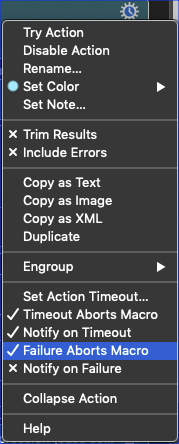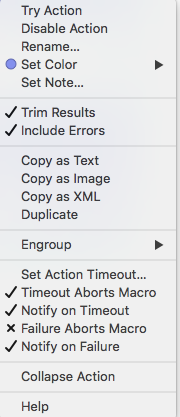A lot of my macros use Applescript and their results. I then need the results in IF-THEN macros.
As a standard, the macros containg the applescript codes save their results to a variable named "KMV_ASR", which a standard error-checking macro scans for possible strings like "err", "exception" and similar things. The respective macros have a checkmark for "include errors".
Now there’s one problem. Most of my scripts are running smooth, but return before their stored result a first line like this one:
2020-05-13 18:11:57.821 osascript[13574:7425605] ApplePersistence=NO
2
where I only would need the figure "2".
I remember that this "ApplePersistence" thing was a seldom liked feature introduced with Autosave in Lion, which you could turn off on a per app basis with "defaults write com.apple.appname ApplePersistence -bool no".
But a quick check with "defaults read com.apple.scripteditor2 ApplePersistence" did not show a key/value pair.
This thing drives me mad, as I do not find a way to circumvent this ApplePersistence thing. Removing the checkmark for "include errors" would obviously render my standard error-checking macro useless, but with this Persistence thing, the output of the variable is also a nonvalue….
Anbody has an idea? Thanks for a hint.

